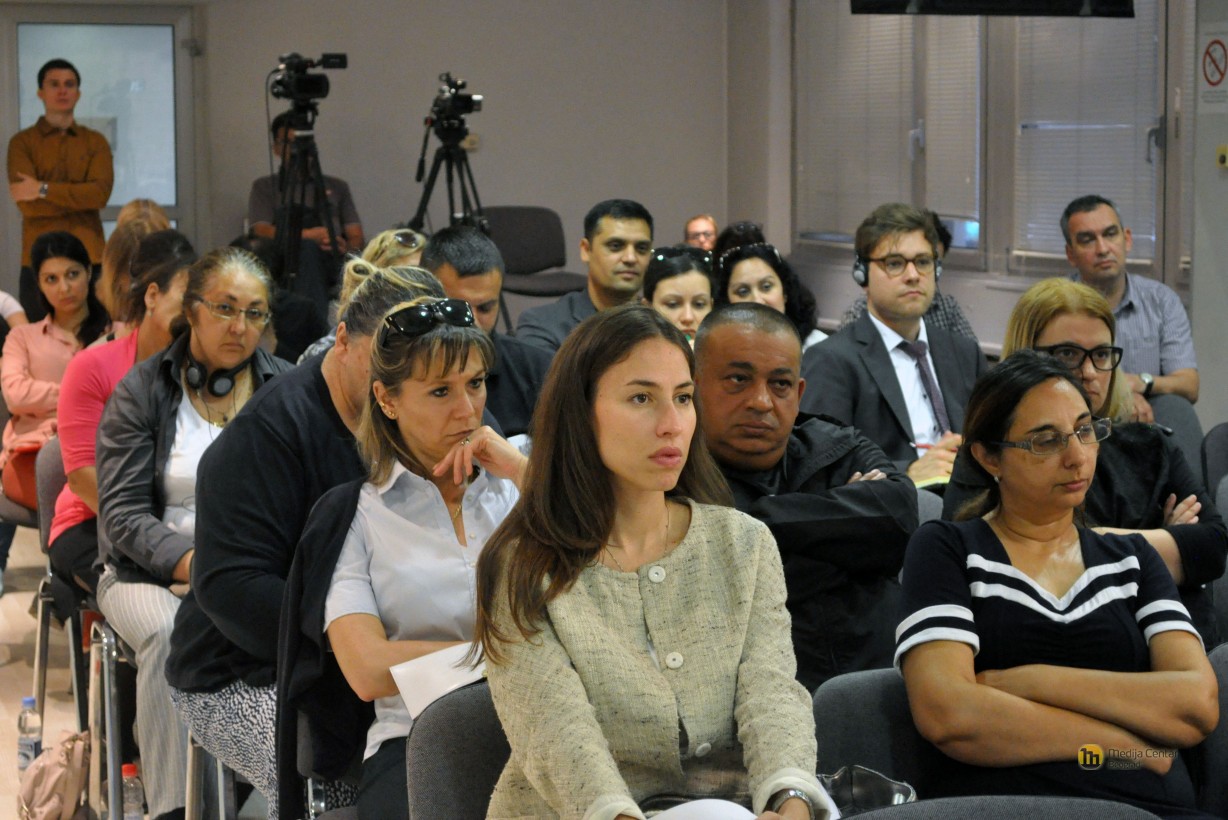For improvement of socio-economic position of Roma fight against anti-Gypsyism and discrimination is a must
- 22 May 2018
- News

Aleksandra Bojadjieva at the Presentation of the Report on situation of Roma in Serbia, Media Center, Belgrade, 22.05.2018 (photo: Medija Centar, Beograd)
Belgrade – RCC’s Roma Integration 2020 (RI2020) Policy Expert Aleksandra Bojadjieva spoke today at the presentation of the report “Wall of Anti-Gypsism – Roma in Serbia”, one of five from the series “The Wall on Anti-Gypsyism – Reports on Roma Rights in the Western Balkans”, organized by the Civil Rights Defenders.
“As long as measures for improving the socio-economic situation of Roma are implemented without fighting the causes for such situation, namely anti-Gypsyism and discrimination, the results will diminish in time and the problems will continue to perpetuate”, said Bojadjieva. “That is why anti-Gypsyism should be recognized and measures to combat it should be included in the Roma integration Strategies and Action Plans” she continued. Bojadjieva underlined that “measures targeting the mainstream society are sine qua non for successful integration policies, but it is also important to focus on empowerment of Roma, and not their further victimization and exclusion”.
On this occasion, Bojadjieva reminded on the conclusions of the RI2020 Regional Workshop “Addressing Discrimination and Anti-Gypsyism in the Enlargement Region”. The tendency to blame Roma for their exclusion and the failure of the integration policies must end. Besides the need to legally recognize anti-Gypsyism as a negative societal phenomenon, anti-Gypsyism should also be considered and addressed within the targeted and mainstream measures for integration of Roma, the focus of the Roma integration policies should extent towards the mainstream society, institutional anti-Gypsyism must be addressed, and a system to monitor the occurrence of this phenomenon should be established. Without the meaningful and throughout participation of Roma and Romani women in the whole policy cycle, the risk of formulating measures on wrong perceptions may continue. Governments must take on clear responsibility to combat anti-Gypsyism in partnership with many other actors in the society, and allocate adequate human and financial resources.

Presentation of the Report on situation of Roma in Serbia, Media Center, Belgrade, 22.05.2018 (photo: Medija Centar, Beograd)
The report “The Wall on Anti-Gypsyism – Roma in the Western Balkans”, also states that anti-Gypsyism prevailing in Europe is the root of the socio-economic situation of Roma in the region, their exclusion, the refusal of national governments to recognize and appropriately address their situation, the indifference towards crimes committed against them, the silent complicity of the Western Balkan governments and the view of the Western European governments and the European institutions that the announcements of policies to ensure equal opportunities is sufficient and does not have to be followed by actual policies or implementation.
In order to ensure the rights-based approach and to change the attitude of the majority towards Roma, training initiatives for public officials, media representatives or pupils are indispensable as well as to influence the public discourse. Implementation of legislation and policies is always closely linked with the public behavior, discourse and opinion, thus working on all of the three is necessary to achieve a change, as reported by the Civil Rights Defenders.
The reports on Roma in Bosnia and Herzegovina, Kosovo*, Serbia and The Former Yugoslav Republic of Macedonia , as well as report on Roma in Western Balkans contain information about the situation of Roma in regards to living conditions including employment, education, housing, access to justice, personal documents, health care, security and freedom from torture, and asylum and forced return.
Download the Reports:
- The Wall of Anti-Gypsyism – Roma in Western Balkans (Regional report)






